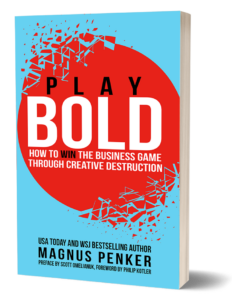Business Experiments: A Guide to Why & How
Welcome to our post on Business Experimentation! Today, we’ll explore why business experiments are important and how they benefit your organization. You’ll gain valuable insights into hypothesis formulation, the four levels of business experiments, and how to create your own experiments. By the end of this article, you’ll understand the significance of experimentation and be ready to take your business to new heights!

Why Are Business Experiments Important?
Business experiments provide an invaluable means of reducing uncertainty and gaining insights. They allow you to test assumptions, hypotheses, and ideas before committing significant resources. By conducting experiments, you can make data-driven decisions, refine your strategies, and ensure the success of your business initiatives.
What is a Hypothesis, and How Do You Define One?
A hypothesis is a testable statement that predicts the outcome of an experiment. It’s crucial to define clear and specific hypotheses before conducting experiments. A well-formulated hypothesis serves as a guide, enabling you to focus on collecting relevant data and drawing actionable conclusions.
The Four Levels of Business Experiments
The experimentation guide outlines experiments on four levels: Verification, Validation, Desirability, Feasibility, and Viability. These levels are sequential, and you can progress through them as you gather data and insights. Remember, you don’t have to conduct every experiment on each level; choose the ones that align with your hypotheses and priorities.
1. Verification: Discover if your general direction is correct by testing basic assumptions and gaining initial insights.
2. Validation: Validate your chosen direction with solid evidence to reduce uncertainty and ensure the likelihood of success.
3. Desirability: Assess whether your business idea is solving the right pain points for your target audience.
4. Feasibility and Viability: Evaluate if your solution aligns with your core operational strengths and contributes to long-term growth.
Learning Personas for Successful Experimentation
To conduct effective experiments, it’s essential to understand the various personas involved:
- The Anthropologist: Observes how people interact with products and experiences, generating innovative ideas.
- The Experimenter: Celebrates the process of testing scenarios to make ideas tangible and find efficient solutions.
- The Cross-Pollinator: Draws connections between unrelated ideas, bringing fresh perspectives to the organization.
- The Hurdler: Tackles challenges head-on, gracefully overcoming obstacles with determination.
- The Collaborator: Values teamwork, forming multidisciplinary teams to get things done effectively.
- The Director: Has a clear understanding of the bigger picture, driving opportunities and maximizing team potential.
- The Experience Architect: Focuses on creating remarkable individual experiences through various touchpoints.
- The Set Designer: Creates energized work environments that stimulate creativity and celebrate individuality.
- The Caregiver: Understands individual customers’ needs and creates strong relationships with empathy.
- The Storyteller: Captivates audiences with compelling narratives of initiative, hard work, and innovation.
Building Your Experimentation Capabilities
To succeed in business experimentation, it’s crucial to develop and strengthen specific capabilities:
- Market Growth: Understand market trends and identify growth opportunities.
- Offer Innovation: Create and test innovative product or service offerings.
- Sales Innovation: Innovate in your sales processes and strategies.
- Organizational Innovation: Foster innovation within your organization’s structure and culture.
- External and Internal Transformation: Transform your organization internally and externally to meet changing market demands.

Examples of Business Experiments and Digital Tools
To illustrate the concepts discussed, we’ll look at two types of experiments along with their respective digital tools:
- Experiment 1: Investigation Through Discussion Forums
- Cost: $0-20K+
- Objective: Gather insights, uncover assumptions, and address customer pain points.
- Experiment 2: The Mechanical Turk (Flintstoning)
- Cost: $0-10K
- Objective: Test demand for a product or service through a manual process.
Conducting the Mechanical Turk Experiment – A Case Study In a retail store chain, the challenge of high inventory shrinkage prompted the hypothesis of implementing better security measures. To test this, dummy cameras were placed strategically to assess the potential impact. The results were promising, leading to further investment in a single store with actual cameras. The outcomes provided invaluable data and insights for future decision-making.
Accelerating Innovation with Accreditation
To fully leverage the power of business experimentation and the Innovation360 framework, organizations can enroll in our online courses.
Our online business experiment courses provide an excellent foundation for fostering an innovation culture.
After the online course, we recommend taking the next step to become an Innovation360 licensed practitioner. Our online accreditation or instructor-led accreditation programs enable practitioners to drive innovation at a deeper level. By obtaining full accreditation, practitioners gain a comprehensive understanding of innovation management, ensuring lasting success.
Moreover, we recommend the top-listed book Play Bold, written by our founder Magnus Penker, with a foreword written by the legendary marketing consultant Philip Kotler.

